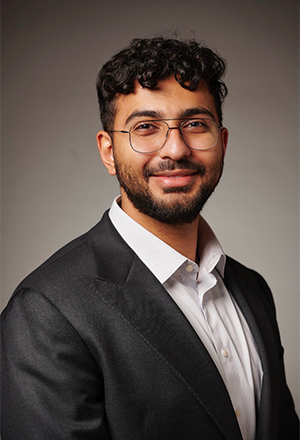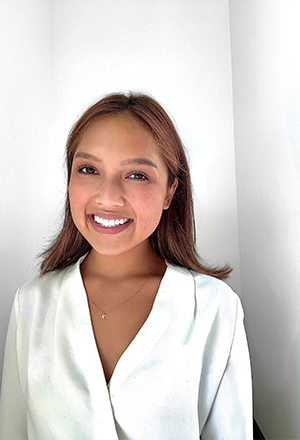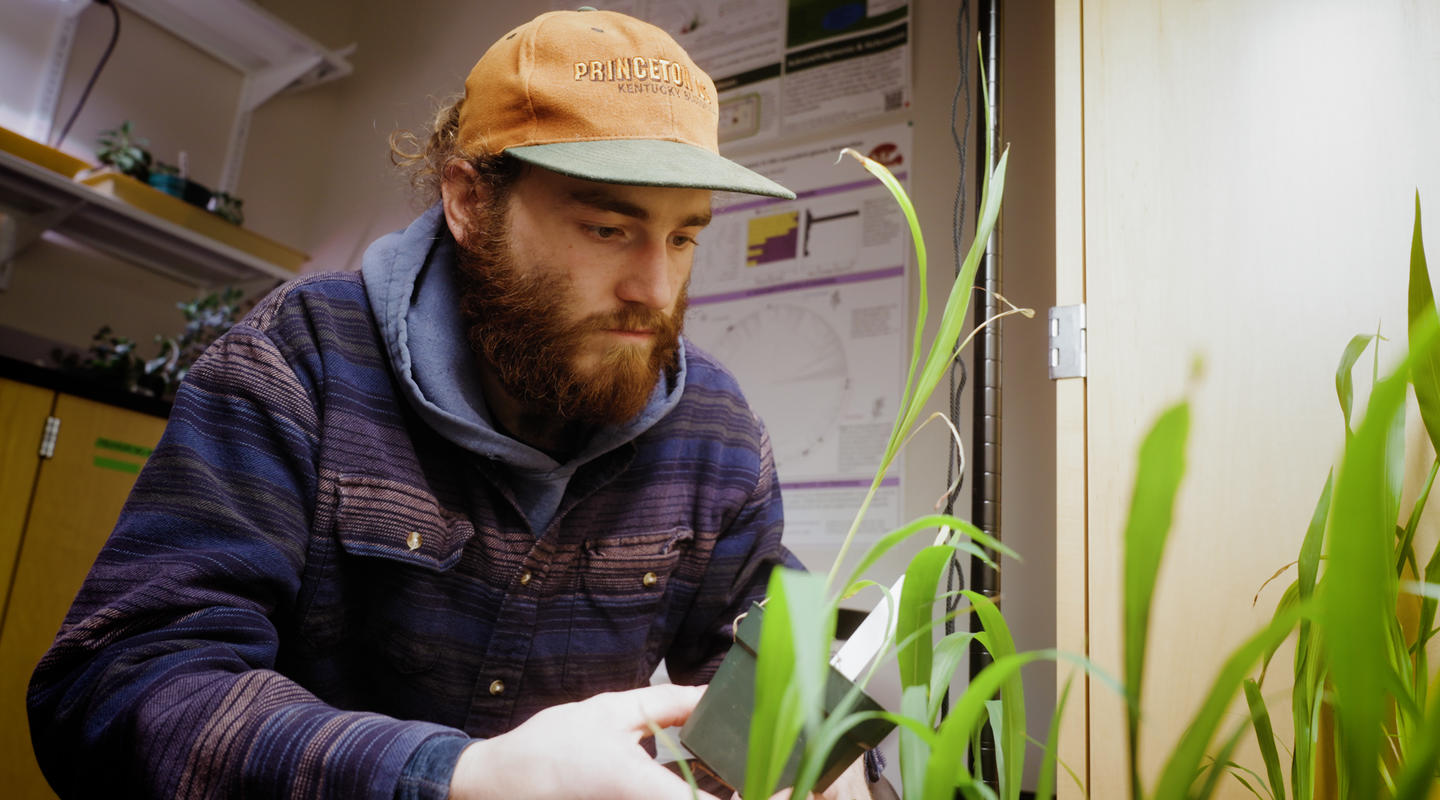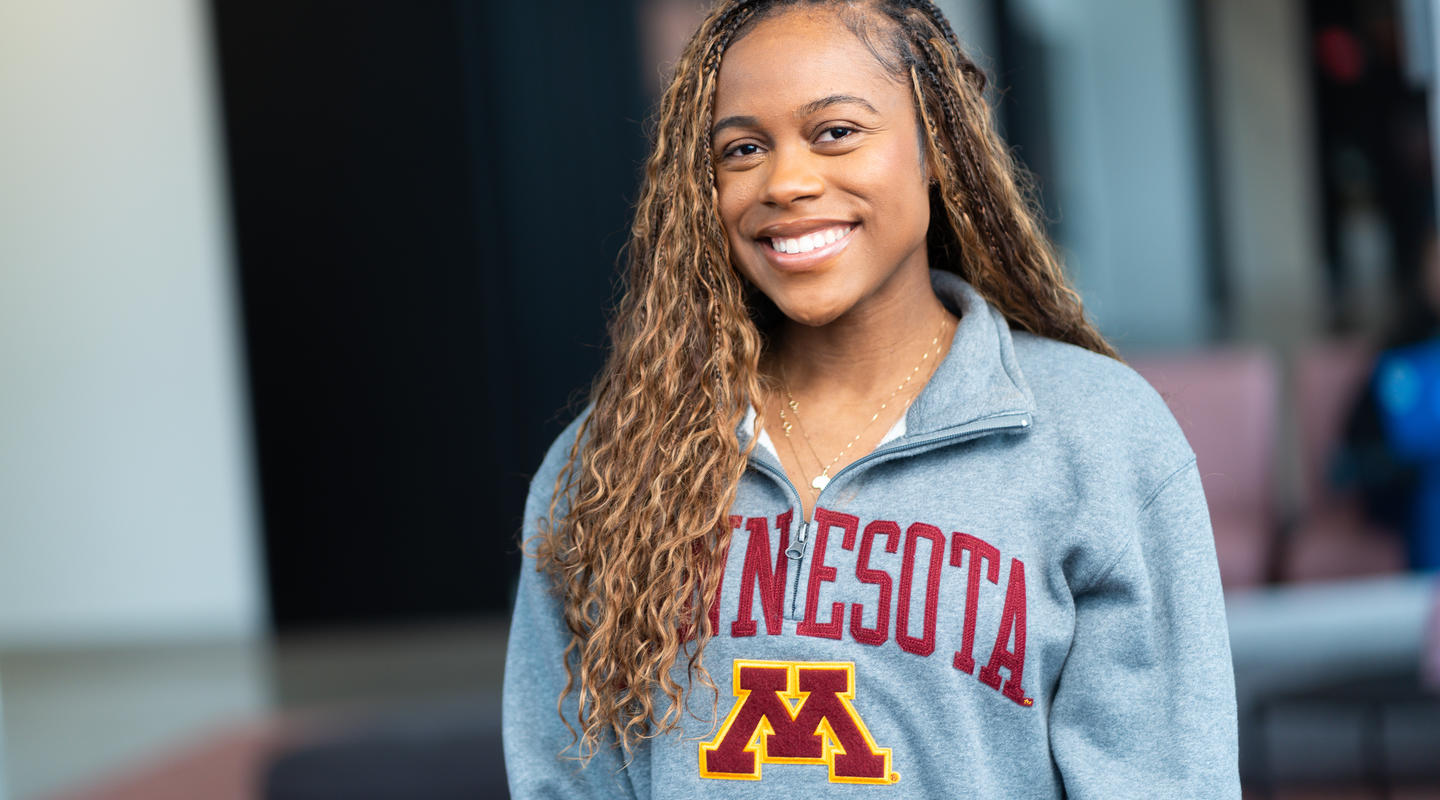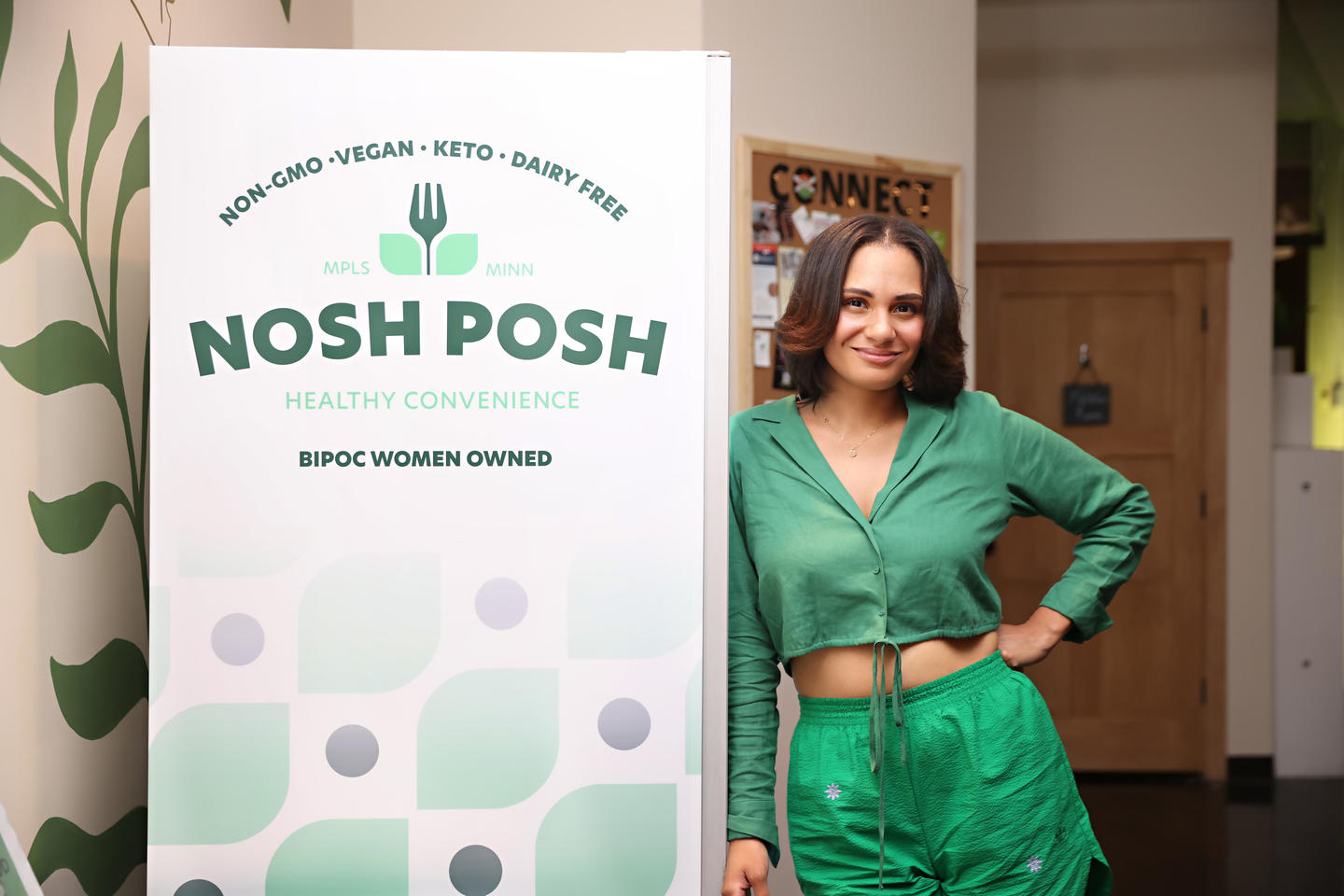
Nosh Posh founder Tatiana Freeman is bringing healthy snacks made by women- and BIPOC-owned companies to the workplaces and beyond. Photo: Courtesy of Tatiana Freeman
Tatiana Freeman’s business idea started with a craving. It was 8 p.m., she was home, and she wanted something healthy to eat. But it was at the height of the COVID-19 pandemic. Restaurants were closed or had limited service. “I realized it was super hard to find healthy options later at night,” she says.
The next morning, she woke up and decided to change that scenario. Freeman, whose job as a housing manager had ended, was trying to figure out her next move. “The person I was dating at the time had a transportation and moving company. Being in close proximity to that inspired me to think about starting a business,” she says.
In 2021, she launched Nosh Posh, a healthy snack company that features products from women- and BIPOC-owned businesses. Freeman, who also works as a flight attendant, found products online and during her travels. “I had many boxes of snacks in my house. Every time I would see a friend, I would bring snacks and get their perspective.” She also tested the products at farmers markets and community events.
Freeman started out by creating snack boxes, which were available as one-time purchases or by subscription. She also started doing corporate deliveries, offering boxes for meetings and retreats. In August 2022, she placed the first Nosh Posh vending machine at The Wilderness Fitness and Coworking space in Minneapolis. She now has five machines in the Twin Cities. “The B2B side is where we’re seeing the most growth,” she says.
Working out of Salt Box, a warehousing space in Arden Hills, Freeman does it all—assembling and shipping snack boxes, making deliveries, and gathering items to stock vending machines. Although she received business advice from the Metropolitan Economic Development Association (MEDA), she knew she needed legal counseling but didn’t have the budget for a lawyer. Through MEDA, she learned about the University of Minnesota’s Business Law Clinic, which offers free services to entrepreneurs and small-business owners, many of which are minority-, women-, and veteran-owned.
First-of-its-kind clinic
Launched in 2001 by John Matheson, Law Alumni Distinguished Professor of Law and director of the Law School’s Corporate Institute, the clinic was started with a gift from a law school graduate. It was one of the first transactional law clinics at a law school in the United States.
Each semester, 16 second- and third-year students enroll in a business law and entrepreneurship clinic class. They are matched with a volunteer business law attorney. Each attorney takes on a client and supervises two students. Students work with two or three clients throughout the semester.
“We could not offer this clinic without the support of donors and lawyers who volunteer their time,” says Kiri Somermeyer, who directs the clinic and serves as executive director of the Corporate Institute.
All about problem-solving
The students and supervising attorney help clients form an entity—a nonprofit, a benefit corporation, a limited liability company, or an S corporation, for example. They also help draft service contracts or other agreements needed to run a business, answer insurance or risk-related questions, provide intellectual property advice, file trademarks, and handle other transactional legal issues that small businesses face.
“It’s learning about business and problem-solving,” says Somermeyer, who lists restaurants, tea, hot sauce, chocolate and other food makers, service companies, clothing businesses, and other producers of personal goods as some of the businesses the clinic has served.
In addition to helping the business owners, the clinic helps students learn about practicing transactional law. “For most of the students, this is the first time they’re working directly with clients,” Somermeyer says. “They learn to spot legal issues that could cause the businesses risk or issues in the future. They learn things like managing a client relationship, keeping in touch over email, asking the right questions, meeting the client’s needs, and tracking their time. They’re doing the work of a small-business lawyer.”
Freeman worked with Somermeyer, Yousef AlMesad, ’23 J.D., and Kat Vu, ’24 J.D., to improve her sales and vending machines agreements, tighten her privacy policy, create a terms and conditions agreement, establish a refund policy, and create marketing guidelines. They also drafted an agreement for vendors interested in selling Nosh Posh products on consignment.
“Without the Business Law Clinic, I probably wouldn’t have formal agreements. I would continue to use email or informal agreements or find templates online,” says Freeman, who would like to add a line of snack packs for kids and partner with a caterer to provide more substantial food items. “Having some accountability measures in place protects you and your business and puts up roadblocks to prevent adverse things that could happen.”
Support the Business Law Clinic and other Law School clinical education programs.
